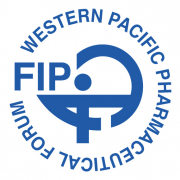Anticoagulant Also Inhibits Diarrhea Bug Read more from Asian Scientist Magazine
Anticoagulant Also Inhibits Diarrhea Bug
The discovery that heparin dose-dependently inhibits Cryptosporidium infection could lead to
the development of new anti-cryptosporidial agents.
Asian Scientist Newsroom | July 8, 2015 | In the Lab Read more from Asian Scientist Magazine
at:http://www.asianscientist.com/2015/07/in-the-lab/anticoagulant-inhibits-diarrhea-bug/

AsianScientist (Jul. 8, 2015) – Researchers at the University of Tokyo and Obihiro University of Agriculture and Veterinary Medicine have demonstrated that heparin, a type of sulfated polysaccharide commonly used as an anticoagulant, inhibits infection with Cryptosporidium parvum, a protozoan that causes diarrhea in humans and other mammals. Their results, published in Scientific Reports, will facilitate the development of anti-cryptosporidial agents.
Cryptosporidium is zoonotic pathogen (a pathogen that causes disease in animals and which can also infect humans), which infects a wide range of mammals including humans and cattle causing severe diarrhea. The pathogen can cause outbreaks in humans through tap water because of its resistance to chlorination, and economic loss for farmers by infecting and causing severe diarrhea in young calves. Therefore, the livestock sector requires effective measures against the pathogen and investigation of the mechanism of infection and development of new medicines are urgently needed.
In this study, Associate Professor Kentaro Kato and his group at the University of Tokyo Graduate School of Agricultural and Life Sciences and Obihiro University of Agriculture and Veterinary Medicine investigated whether sulfated polysaccharides inhibit infection by the Cryptosporidium parasite using cells derived from human colon tissue.
The group showed that heparin inhibits the infection of Cryptosporidium in a dose-dependent fashion. In addition, the group investigated the mechanism of infection by the Cryptosporidium parasite, and found that heparan sulfate, a sulfated polysaccharide found on the surface of mammalian cells, is involved in Cryptosporidium infection.
“This study will further promote our understanding of the interaction of heparin sulfate with Cryptosporidium and the mechanism of Cryptosporidium infection, and will facilitate the development of anti-cryptosporidial agents,” said Kato.
The article can be found at: Inomata et al. (2015) Heparin Interacts with Elongation Factor 1α of Cryptosporidium parvum and Inhibits Invasion. Read more from Asian Scientist Magazine at: http://www.asianscientist.com/2015/07/in-the-lab/anticoagulant-inhibits-diarrhea-bug/
Source: University of Tokyo. Disclaimer: This article does not necessarily reflect the views of AsianScientist or its staff. Read more from Asian Scientist Magazine at: http://www.asianscientist.com/2015/07/in-the-lab/anticoagulant-inhibits-diarrhea-bug/
Reference:http://www.asianscientist.com/2015/07/in-the-lab/anticoagulant-inhibits-diarrhea-bug/

